
The  Process
Process  Matters
Matters
THE PROCESS MATTERS
Engaging and Equipping People for Success
JOEL BROCKNER
PRINCETON UNIVERSITY PRESS Princeton & Oxford
Copyright 2016 by Princeton University Press
Published by Princeton University Press
41 William Street, Princeton, New Jersey 08540
In the United Kingdom: Princeton University Press
6 Oxford Street, Woodstock, Oxfordshire OX20 1TW
press.princeton.edu
All Rights Reserved
ISBN 978-0-691-16505-9
Library of Congress Control Number 2015947042
British Library Cataloging-in-Publication Data is available
This book has been composed in Sabon Next LT Pro and Univers LT Std
Printed on acid-free paper.
Printed in the United States of America
10 9 8 7 6 5 4 3 2 1
Contents
Acknowledgments
It was only fitting that I started writing this book in Boston, while on sabbatical at Harvard Business School. Four decades earlier in the same city, when I was a doctoral student in psychology at Tufts, my mentor, Jeff Rubin, said I had promise but that I really needed to work on my writing. In one of my early lessons that the process matters, Jeff advised that it was necessary to pay attention not only to the what but also to the how. Ever since, I have taken Jeffs words to heart while writing primarily for fellow academics. However, I wanted this book to reach a broader audience. Before gaining acclaim for his books on emotional intelligence, Daniel Goleman was a contributor to the Science Times, a section of the Tuesday edition of the New York Times. I marveled at his ability to distill the essence of social science research and make it relevant and reader friendly. I decided to take a crack at writing one of those types of books.
In the truest sense, this book would not have been possible without the many forms of help I have received. I am very thankful to professional friends and colleagues who offered incisive feedback on various drafts of the manuscript: Teresa Amabile, Art Brief, Alia Crum, Adam Grant, Eric Hertz, Joshua Margolis, Ashley Martin, Andy Molinsky, Ann Tenbrunsel, and Linda Trevio. I am indebted to my editors at Princeton University Press, Meagan Levinson and Eric Schwartz, as well as to Jenn Backer and Ali Parrington at Princeton University Press, and to Margo Fleming at Stanford University Press. I also owe a debt of gratitude to a few longtime friends who helped out by reading earlier drafts and by showing genuine interest: Steve Auerbach, Richard Gold, and Eric Stern.
I have received tremendous support from my family. Our sons, Eliot, Dustin, and Lucas, provided lots of good ideas for the book and, more generally, have inspired me in ways about which I could write yet another book. Thanks, guys! And, of course, words cant begin to describe how helpful my wife, Audrey, has been. Audrey is generally my No. 1 supporter and especially so on this project. She is incredibly wise about a lot of things, and luckily for me this includes her views on both the substance and style of my writing. Typically, after writing a few pages, I would ask for her feedback. This went on, from start to finish. Not only did she offer really useful advice, but she did so in practically record time; after all, the process matters. I dedicate this book to Aud with great admiration, affection, and love.
The  Process
Process  Matters
Matters
1  Introduction
Introduction
See if you can figure out what these two situations have in common:
(1) John works for a high-powered investment bank. His work environment is always stressful, but this time he is really feeling the heat. His firm has had several bad quarters in a row. In a recent meeting with their boss, John and his team had been given a strict order: they needed to increase their contribution to the bottom line by 15 percent relative to the previous quarter. Seared in Johns memory were his bosss parting words: I dont care how you get there, just get there.
(2) I returned home late one night after taking part in a basketball free-throw shooting contest open to all members of the Columbia University community. I was feeling pretty good about things. Out of the fifty contestants who entered, I tied for first (making twenty-two out of twenty-five shots), which necessitated an overtime round between the other top finisher and me. The other person shot better than I did in overtime, so I finished as the runner-up. The next morning at breakfast, my three sons, then ranging in age from five to eleven, asked me how it had gone. I decided to make this a teaching moment, as in, theres more to life than winning and losing. So I proceeded to tell them that I had tried as hard as I could, that I really enjoyed the experience, and, oh, by the way, that I had come in second out of fifty people. My sons brought me down to earth quickly: So, Dad, you lost! they cried out, practically in unison.
At first blush these two situations seem pretty different from one another. But they also display a noteworthy commonality: our obsession with results. Indeed, several familiar expressions reveal the great importance we assign to outcomes, such as The bottom line is or At the end of the day Dont get me wrongwe should care about outcomes. Obviously we would rather succeed than fail, win rather than lose, and make more money rather than less. The problem is that all too often our obsession with results blinds us to the reality that how we get there, the process, also makes a big difference.
How the process is handled really matters to those on the receiving end of decisions. Just ask Jay Leno, the longtime host of NBCs The Tonight Show. Jay didnt take it well when NBC replaced him with Conan OBrien in 2009. Why? Was it because, after being No. 1 in late-night TV, he resented being told that his services were no longer needed? Was it because, at sixty, he felt hurt that someone ten to fifteen years younger would be replacing him? It is hard to know the real reasons, but his more recent reactions to being replaced by Jimmy Fallon (who is even younger than Conan OBrien) give us some clues. As he put it himself, The main difference between this and the other time is Im part of the process. The last time the de cision was made without me. I came into work one day and [was abruptly told], youre out. This time it feels right.
Part of Jay Lenos satisfaction the second time around was probably because NBCs CEO, Steve Burke, made a point of meeting with Jay himself before any changes were announced. As Burke said after their meeting, Clearly our goal has been to make this a smooth transition. Jay deserves to be treated like someone who has done a wonderful thing for our company for two decades. Another important member of NBCs senior management team, Lorne Michaels (the creator of Saturday Night Live), agreed: What has been key to this transition has been the absolute consideration for everyones feelings by all involved. It has been a transparent process. Jimmy Fallon also facilitated things by saying, I have nothing but respect for Jay. If it werent for him, I wouldnt have a show to be taking over.
The Jay Leno example illustrates three of the central points of this book. First, look at how differently Jay reacted to the exact same decision when the process was done well rather than poorly. As the old saying goes, its not only what you do, but also how you do it. Second, doing the process well often entails simple things like involving people in decisions, showing respect, and doing things transparently. Not exactly rocket science. Furthermore, doing the process well may not require much in the way of tangible resources. For Jay Leno, it only required a few key people to show him real respect; this cost very little time or money. Third, given how much the process matters, and given the simplicity of doing it right, you would think that processes would be handled well more often than not. Sadly and alarmingly, this is not the case.
Next page
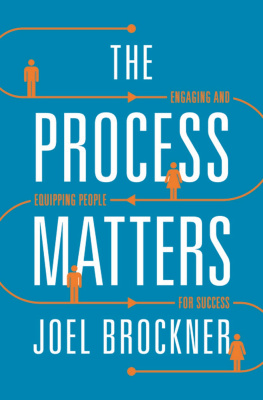
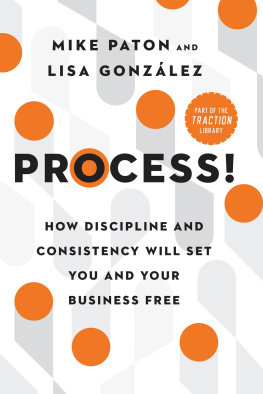
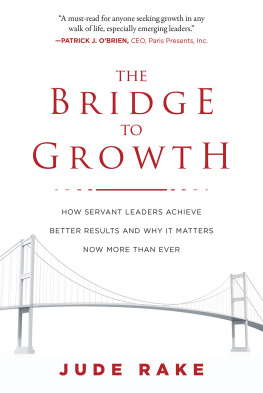

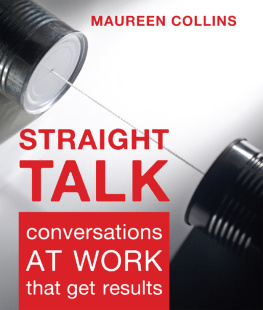
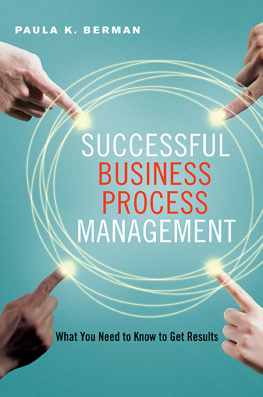
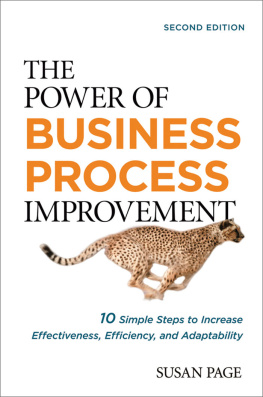

 Process
Process